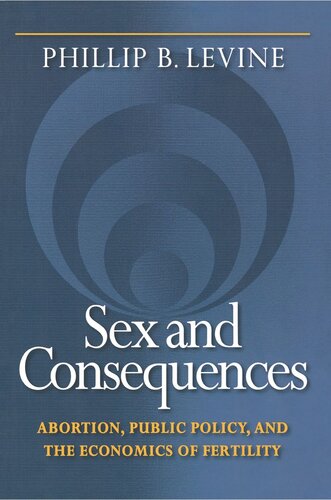

Most ebook files are in PDF format, so you can easily read them using various software such as Foxit Reader or directly on the Google Chrome browser.
Some ebook files are released by publishers in other formats such as .awz, .mobi, .epub, .fb2, etc. You may need to install specific software to read these formats on mobile/PC, such as Calibre.
Please read the tutorial at this link: https://ebookbell.com/faq
We offer FREE conversion to the popular formats you request; however, this may take some time. Therefore, right after payment, please email us, and we will try to provide the service as quickly as possible.
For some exceptional file formats or broken links (if any), please refrain from opening any disputes. Instead, email us first, and we will try to assist within a maximum of 6 hours.
EbookBell Team

4.7
46 reviewsHow do individuals change their behavior when abortion access increases? In this innovative book, economist Phillip Levine uses economic analysis to consider this question, comparing abortion to a form of insurance. Like insurance, he contends, abortion provides protection from downside risk. A pregnant woman who would otherwise give birth to an unwanted child has the option to abort. On the other hand, the availability of this option may increase the likelihood of a pregnancy in the first place.
In a very restrictive abortion environment, few women would choose to have an abortion; legalizing abortion would reduce unwanted births. But if abortion becomes readily available, it may cause individuals to increase their sexual activity and/or reduce their use of contraception, Levine contends. Women will become pregnant more frequently, but will abort those pregnancies. Therefore, these abortions will not reduce unwanted births.
Levine's analysis suggests that the manner in which individuals change their behavior depends on the extent to which abortion is accessible. He supports these assertions using data from both the United States and Eastern Europe, comparing areas that have restricted access to abortion services with those that have liberalized access. Using sound economic analysis, Sex and Consequences goes beyond the ideological arguments that frequently dominate the abortion debate, lending a new perspective to this controversial subject.